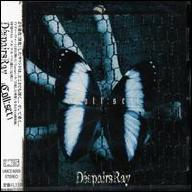That career started with a bang, as her debut single, Keep Yourself Alive, charged straight into the Top Ten and shifted 360,000 units, only to be shadowed by I Believe's million copies, also in 1995. I'm Proud sold 1.37 million copies the next year, setting Kahara's personal record for singles and beating all of the 1995 releases by Namie Amuro, labeled by the media to be her rival. Her debut album, Love Brace (1996), the music for which was composed by Komuro, is considered among his best works and boasted gargantuan sales of 2.5 million, more than one million of those within the first week of its release. Kahara, who began dating Komuro at the time, capitalized on her success in 1997, when her single Hate Tell a Lie sold 1.05 million copies and the album Storytelling shifted 1.36 million, but it still marked the beginning of her career decline. You Don't Give Up (1998) was Kahara's last single to chart at number one; the album Nine Cubes (1998) sold only 260,000 copies; and, meanwhile, the tabloids were all over her scandalous relationship with Komuro, which ended in a breakup amid rumors of drug abuse by both Komuro and Kahara. That was followed by Kahara's several suicide attempts, a stint in rehab, and a temporary loss of her contract with Warner Music. The label still didn't miss the chance to release Kahala Compilation (1999), which scored number one and sold 650,000 copies.
Kahara was signed back in 1999, and worked with Masato Max Matsuura, the Japanese producer famous for his eye for star potential, as well as American showbiz heavyweights Andy Marvel (he produced Jessica Simpson), Gary Carolla, and Vincent de Giorgio (they composed music for *NSYNC). She began writing her lyrics herself, though. But even the impressive cast of producers didn't prevent her 1999 and 2001 albums (One Fine Day and Love Again, respectively) from charting like rocks. In 2004 Kahara switched to Universal, where she enjoyed some very moderate success -- her sixth album, Naked (2005), sold 12,000 copies. Her career briefly surged in 2006, when she starred in a musical and released the best-selling photo book -Crystallize II, full of risqué nude shots (it came with two strawberry-flavored condoms). She also did a song for the prime-time period drama #Taiga, but then hit another stroke of bad luck: her talent agency fired her in 2007, tired of her psychological problems, which only grew worse after Komuro was busted in 2008 for alleged financial fraud. In January 2009 Kahara was hospitalized due to a tranquilizer overdose. ~ Alexey Eremenko, Rovi

















